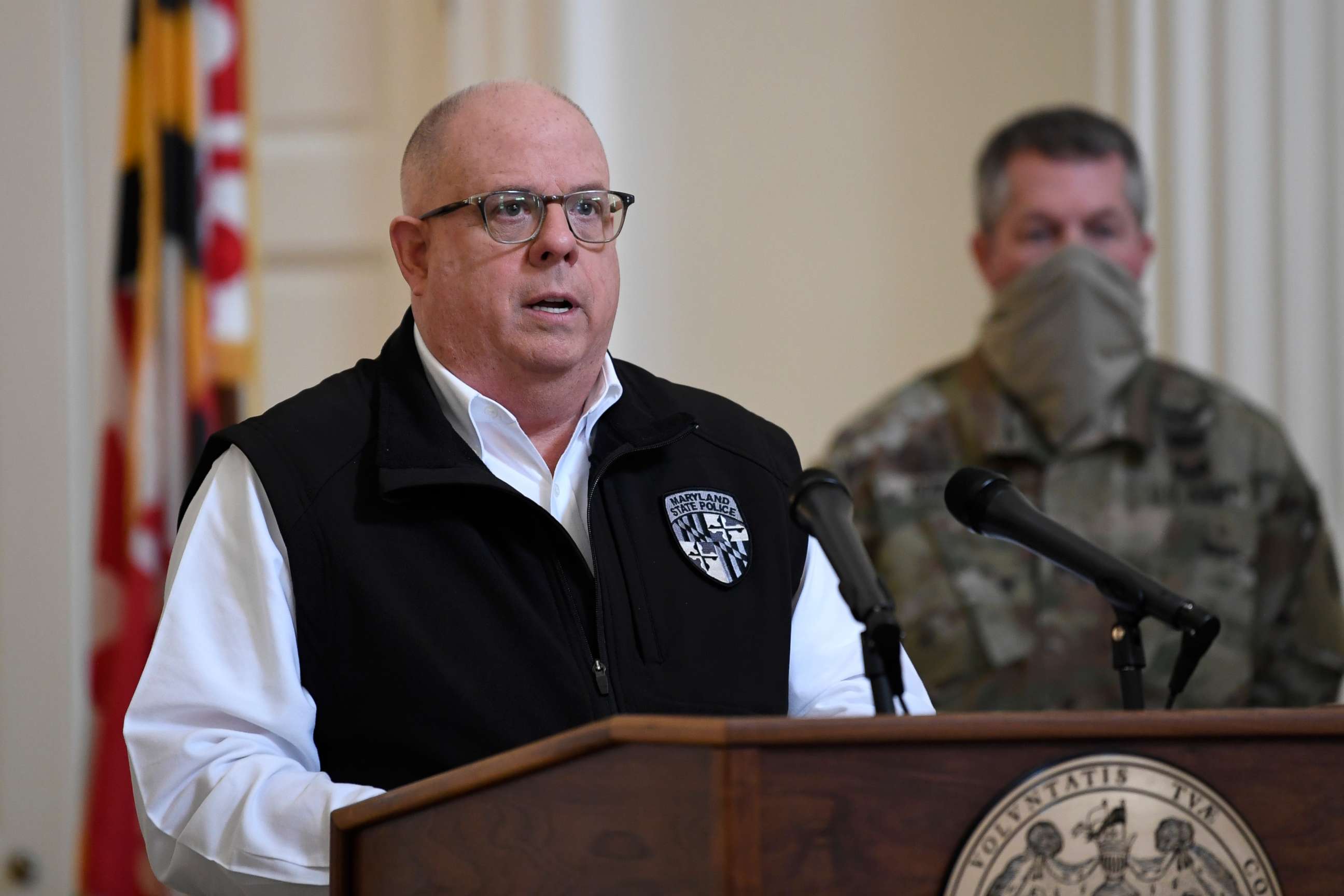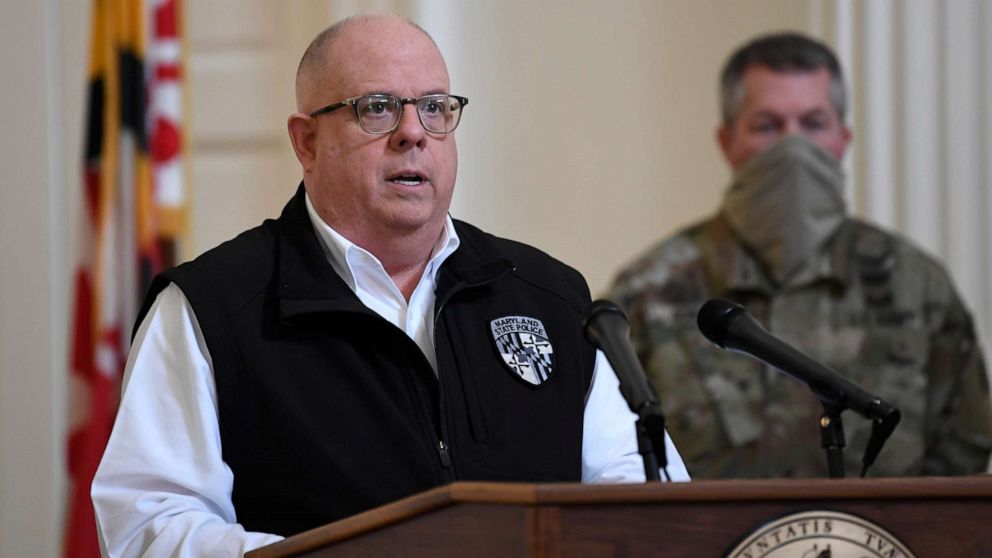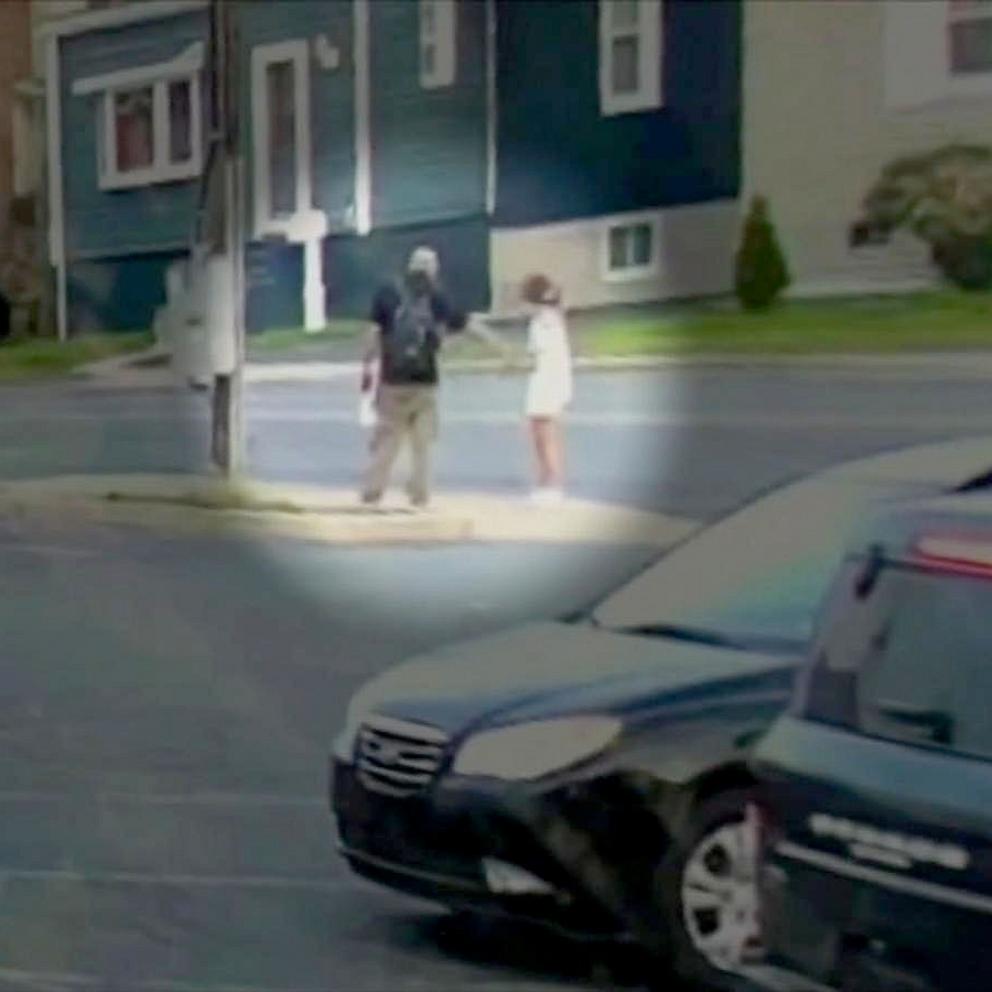Gov. Hogan pushes back on claim states in 'good shape' for coronavirus response
The governor of Maryland pushed back against President Donald Trump's claim at his latest briefing that states are in "good shape" with ventilators and protective equipment.
Republican Gov. Larry Hogan acknowledged that states are better off than they were a few weeks ago, but "I think to say that everybody's completely happy and that we have everything we need -- it's not quite accurate," he said on ABC's "This Week" Sunday.
"Everybody still has tremendous needs on personal protective equipment and ventilators and all of these things that you keep hearing about," he added. "Everybody's fighting to find these things all over the all over the nation and all over the world."
As chairman of the National Governors Association, Hogan, along with the vice chair, New York Gov. Andrew Cuomo, called on the Trump administration Saturday to give $500 billion to states in direct assistance to states as they respond to the coronavirus pandemic.
In recent press conferences and interviews, Maryland's governor has indicated that the Baltimore-Washington corridor is emerging as a new coronavirus hot spot.
More than 7,600 people have been diagnosed with the novel coronavirus in Maryland and more than 200 have died, according to the state's department of health. More than 20,000 people have died in the U.S. as a whole, and more than 529,000 have been diagnosed.
When asked about lifting stay-at-home orders by May 1 -- which the president has recently suggested -- Hogan said Sunday that he didn't have a "artificial deadline" for re-opening Maryland.

"Right now, the first thing is saving lives and keeping people safe," he told "This Week" co-anchor Martha Raddatz. "We do also have to think about how do we eventually ramp up and get some folks back to work, but you can't just pick a date and flip a switch. I don't think it's going to be that simple."
He also said he agreed with a recent report by former Food and Drug Administration Commissioner Scott Gottlieb, which said that the U.S. would need to be able to process 750,000 coronavirus tests a week before the country could reopen.
"I think widespread testing and contact tracing is going to be absolutely essential to finding out exactly where we are in this in this fight against this deadly virus," Hogan said, praising Gottlieb and noting that he was part of the state's task force.
The governor also said that the racial disparity in novel coronavirus cases among African Americans is "very disturbing," which is why he called for a study to track the infections by race in his state.
"Nobody was really tracking these things and it was difficult to do because none of the federal labs, the CDC, nobody was actually tracking these tests by race," Hogan said.
He added that the state now has data on patients' race for about 80%, which was "better than any state in America."
Portions of the country, including Maryland, have seen racial disparities in the number of coronavirus infections and deaths. While Black residents are 31% of Maryland's population, they make up the majority of deaths in the state from COVID-19 infections at 52%, and 49% of total coronavirus infections, according to the Maryland Department of Health.
Raddatz spoke earlier this week to Maryland state Del. Nick Mosby, who represents part of Baltimore, about the racial disparity. Mosby expressed concern for essential workers in his district, who, according to the Economic Policy Institute, are more likely to be Black and Hispanic.
"The folks that are literally holding up the economy, some of them do have to do not have the ability of social distancing, because they rely on public transportation to get to and from work," he said. "They work in environments where they're the frontline."
At a White House press conference Friday, U.S. Surgeon General Jerome Adams and Vice President Mike Pence said that the Centers for Disease Control and Prevention are working on specific guidance for black communities around the country. Adams said Friday that he wanted to be "crystal clear" that people of color aren't biologically or genetically predisposed to get COVID-19.
Dr. Mary Bassett, the former New York City commissioner of health and a professor at Harvard University's T.H. Chan School of Public Health, doubled down on Adams point.
"These racial differences aren't due to some inherent characteristics of people of who are classified as black or Latino," she told ABC News. "To just say that these are people who've made a series of bad choices and that's why they're sick leaves out a whole other side of the story."
ABC News' Ashley Brown contributed to this report.
What to know about coronavirus:
- How it started and how to protect yourself: coronavirus explained
- What to do if you have symptoms: coronavirus symptoms
- Tracking the spread in the US and Worldwide: coronavirus map




